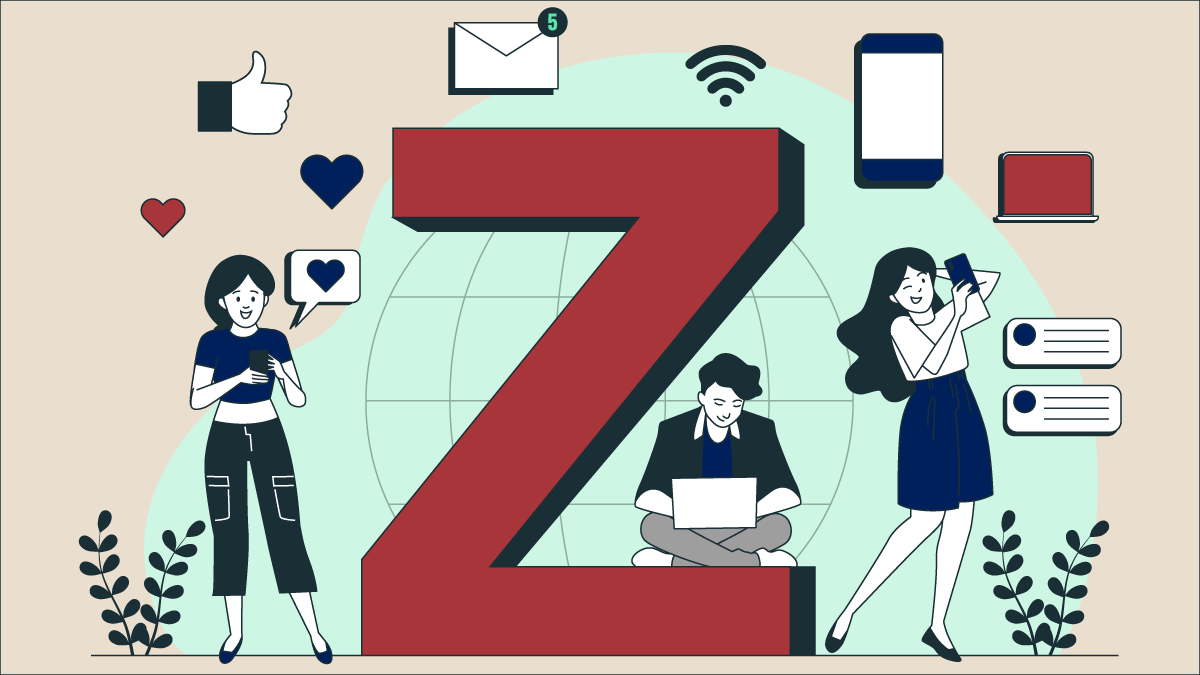Gen Z in the Workplace
Gen Z’s entrance into the corporate world is shifting old social contracts between employers and employees with distinct expectations about the workplace culture, support and environment. As we draw insights from the preferences and behaviors of our newest generation entering the workforce, we need to also look at how “work” itself is changing and evolving.
To discuss this, the Strathmore Human Resources Club (SHREC) organized a Human Resources (HR) Roundtable, held on 4th November 2022, where they had a line-up of qualified and eligible speakers. These speakers varied from day one HR fanatics to Biochemistry majors. There was a rich pallet of experience as all the HR specializations were represented: Human Resource Business Partners, Human Resource Analysts, Compensation and Benefits Officers and Talent and Acquisition Specialists among others.
Managing Gen Z in the workplace is getting harder and harder for employers. This group of individuals has been described as unstructured, individualistic and extremely entitled. On the bright side however, they are exceptionally creative, innovative, self-driven, socially aware, authentic and ambitious. The future of work rests on the shoulders of Gen Z, who will soon surpass Millennials as the most populous and diverse generation in history. Radically different from Millennials, this generation has an entirely unique perspective on careers and how to define success in life and in the workplace. Gen Zs are all about change. They also prioritize flexible working arrangements, community and collaboration in the workplace, shared values, and increased support for mental health.
Characteristics of Gen Z in the Workplace
Gen Z will make almost 30% of the working population by 2025. This generation has higher expectations for the workplace than ever before. To better understand and meet their needs, employers need to understand them and some of their traits and preferences, which include:
Flexible Working Arrangements
Flexibility of remote work became the new global norm during the COVID-19 pandemic. More individuals now consider permanent flexible work options when job hunting. This arrangement is particularly beneficial to the Gen Z as it minimizes many of the stress drivers that worsen their mental health concerns. Additionally, remote and hybrid work encourages productivity and fewer workplace distractions.
Diversity and Inclusion
If there is a group of individuals that truly represent and value the meaning of diversity, it is Gen Z. Diversity matters to them through many aspects, not just isolated to gender and race, but also related to identity and orientation. Companies that can better represent the spectrum of differences in their external branding and marketing are much more likely to diversify their talent pipelines. New company policies must facilitate authentic commitment, employee resource groups, and more representative leadership.
Frequent Change of Jobs
Gen Z not only know what they want but they are more likely to seek out new job opportunities particularly when they feel stagnant or unhappy in the workplace. A report found that 25% of Gen Z employees have switched jobs within 6 months of employment and more are on the move every day. Another report found that Gen Z could change jobs up to 10 times between the ages of 18 and 34. While Millennials and older generations may not prefer frequent career change, Gen Z is different. The labor market is currently quite flexible, and there are many career options for everyone. For employers, this means harder employee retention. They are therefore tasked with making Gen Z’s working experience as enjoyable and attractive as possible.
Mental Health Support
Amidst the current economic and geopolitical instability, as well as the post-pandemic woes, Gen Z employees face massive challenges to their mental health and well-being. Studies suggest Gen Zs in the workplace are disproportionately affected by high levels of stress and anxiety. Additionally, because of their drive to grow and develop their careers, they are faced with more stress at work. Nearly half say they are stressed or anxious all or most of the time, with women more severely impacted than men. While employers have shifted their focus to mental health support, the stigma remains. Gen Z employees want meaningful impact through increased awareness, better access to resources and prevention, empathetic leadership, and a culture of wellbeing.
Career Growth
Having opportunities to learn and grow is now the number one factor that defines an exceptional work environment. Companies that want to attract, retain, and engage young workers must reach across generations to prioritize human connection and meet Gen Z where they are at. In addition, continuous learning is a must. Many Gen Z employees are ambitious, career driven, and eager to learn new things. They want to be able to acquire new skills and knowledge within the workplace.
What does this mean for Employers?
A new generation has arrived. Many employers believe that Gen Z is the most demanding working generation so far. For organizations to attract and retain the best and brightest of the generation, it will require a different mindset. Companies must demonstrate their commitment to a broader set of societal challenges such as sustainability, climate change and hunger. In addition, employers must be ready to adopt a speed of evolution that matches the external environment. Having gained an insight into the traits and preferences of the Gen Z, employers can accommodate them in the following ways:
- Having a real and tangible focus on diversity. Gen Z finds it essential to work for a company that cares about diversity, equity and inclusion.
- Implementing employee well-being programs to help employees cope with stress at work.
- Enhancing learning and career development. For Gen Zs limited career progression opportunities are a reason to quit their job.
- Better leadership and a transparent work culture. Gen Z appreciate transparency at work and healthy relationships with their peers and managers.
- Better onboarding. Onboarding is the very first step for ensuring employee success in the organization. Gen Z employees agree that the onboarding they received equipped them with the resources and skills to do their new job well. It also made them feel valued in their new company and reduced their anxiety levels as new employees.
About the Bachelor of Commerce Programme
The Bachelor of Commerce (BCOM) Programme is designed for students wishing to gain a degree qualification to maximize their career options. The course is structured into a series of modules designed to focus specifically on the core functions of management.
Learn more about the Bachelor of Commerce Programme here
Article by Michelle Nthemba
Would you like to share an article? Write to us at sbscommunication@strathmore.edu
Share This Story, Choose Your Platform!
Your journey to business excellence starts here. Subscribe today and be at the forefront of innovation and leadership.











